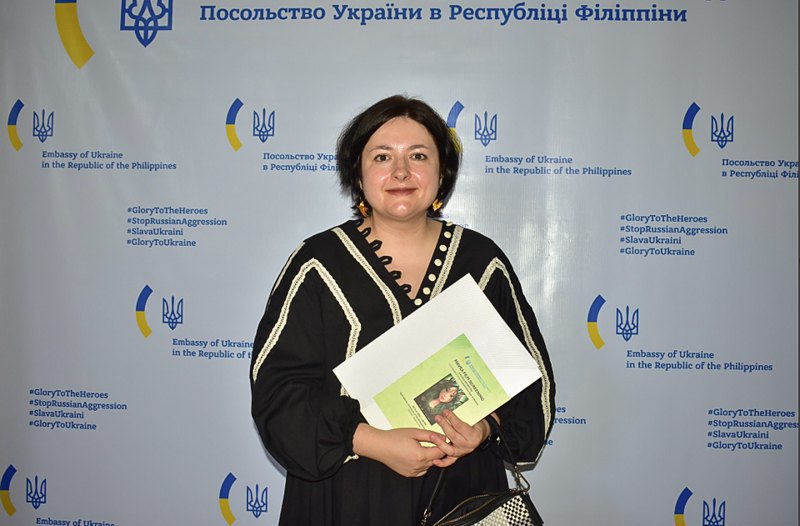
“The Philippines is adopting our experience in countering Russian aggression”
Despite the fact that culturally, the Philippines knows little about Ukraine, this Southeast Asian country is the most positively disposed towards us in the region. This is particularly evident in the fact that the Philippines votes in favour of all UN resolutions concerning the Russian-Ukrainian war and aimed at defending Ukraine's position.
There are two reasons for this. The first is emotional: the Philippines has the same geopolitical position in the Indo-Pacific region as Ukraine has in Europe. China threatens the Philippines to the same extent that Russia threatened and continues to threaten us. There are predictions that open military confrontation between the Philippines and China could occur in 2027-2028.
The Philippines is now drawing on our experience of confronting Russian aggression. Their diplomats, think tanks and military are working hard to prevent war between the Philippines and China. In particular, they are interested in learning more about how and why mechanisms of self-organisation among citizens work in Ukrainian society when faced with a serious threat. Today, Ukraine is a phenomenon for Filipinos. They find it hard to believe that the population is capable of self-organisation and resistance, and they want to understand what needs to be done to make this happen in their country.
"In the Philippines, they believe that the colonisers brought them civilisation, so it is difficult for them to understand our negative attitude towards the times when Ukraine was a colony"
After Mexico, the Philippines is the second most Catholic country in the world. The Philippines was a colony of Spain for 350 years and under US protectorate for 50 years. The United States now views the Philippines as a strategic partner in the region in its confrontation with China, and has military bases in the northern Philippine islands.
It is important to understand that Filipinos have a different perspective on their colonial past than we do: they believe that the colonisers brought them civilisation and development. Therefore, it is difficult for them to understand our negative attitude towards the times when Ukraine was also a colony of Russia.
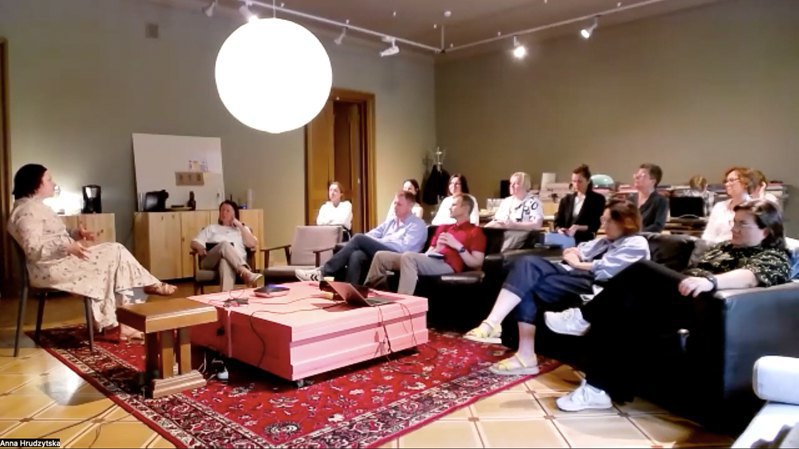
Why is China interested in the Philippines? Firstly, major trade routes pass through there. In addition, after the Philippines gained independence, the Chinese began to actively invest in this country; a significant percentage of the Philippine population is of Chinese origin. Before the full-scale war between Ukraine and Russia began, the Filipinos, like us in the 1990s and early 2000s, pursued a policy of multivectorism, wanted to be friends with everyone, and believed that it was better to be neutral. In 2022, there was a change of government in the Philippines, and a pro-Western president took office. He began to conclude bilateral military alliances with countries in the region, as well as with countries of the European Union.
"We need to talk more about the fact that Ukraine has a long history and did not 'begin' in 1991."
Since Filipinos are not very familiar with Ukrainian culture, any cultural cooperation between us is desirable for them. We need to talk more about the fact that Ukraine has a long history and did not "begin" in 1991 after the collapse of the USSR, as Russia propagates in the media of Southeast Asian countries. We should also explain how we differ from the Russians, why we should be supported in the war against them, and why it is important to defend Ukraine's independence. The following principle may work for the Philippines: if the EU and the US support us, then they should too.
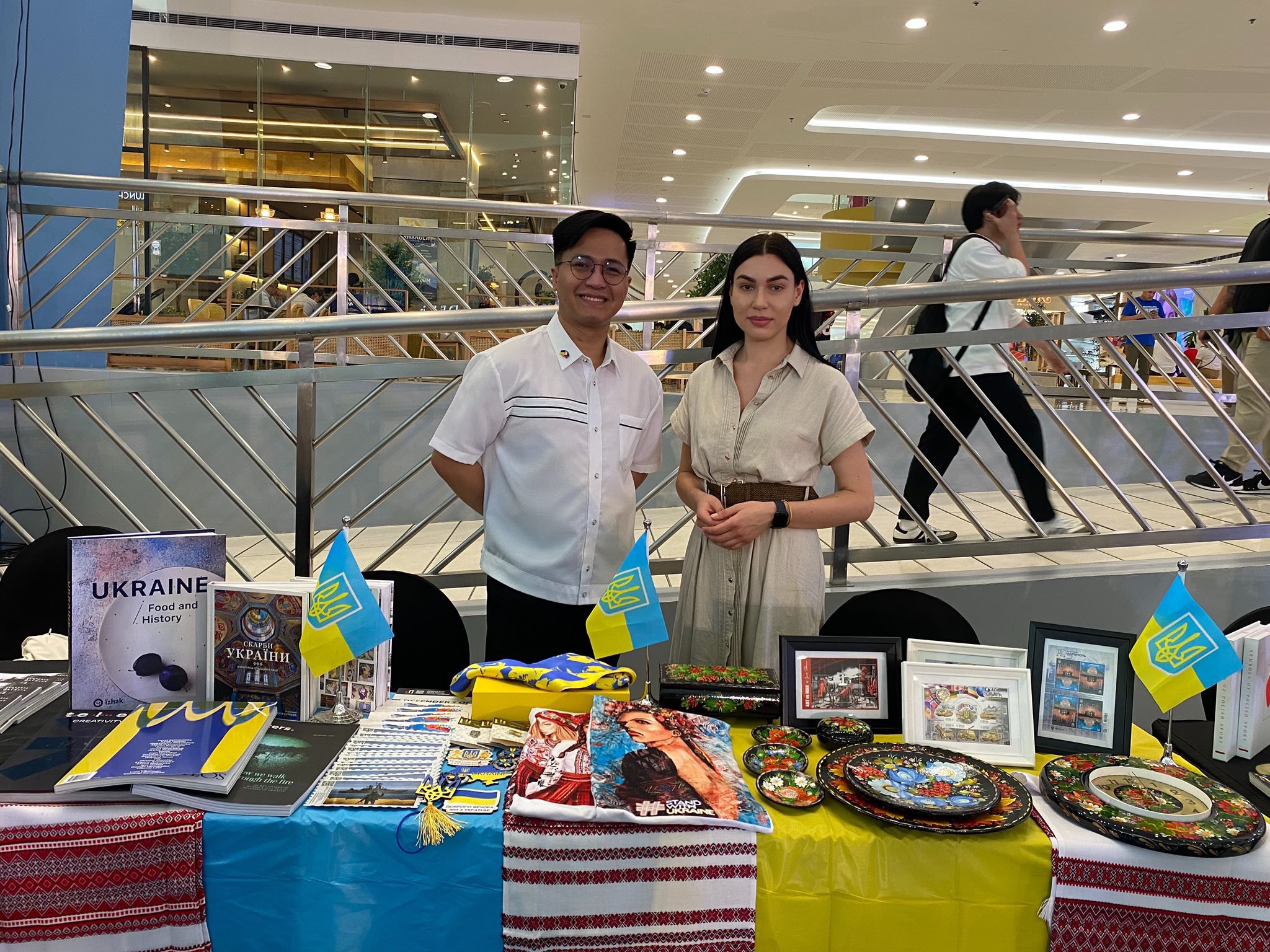
Another important point is that Ukraine needs to become a sectoral partner of the 10 ASEAN countries (Association of Southeast Asian Nations), where, apart from the Philippines, the rest are currently pro-Russian, pro-Chinese or neutral. Next year, the Philippines will take the lead in ASEAN, and all events related to ASEAN will take place on the territory of the Philippines. It is already worth planning a programme of cultural and artistic events that can "highlight" Ukraine there, so that at the end of 2026 we can conclude a sectoral partnership agreement.
"The Philippines does not have a Ministry of Culture, but it does have an analogue of our UCF, which performs the functions of the Ministry of Culture."
The Philippines is a country of dynasties. In fact, the country is controlled by three blocs of dynasties. Politicians are representatives of these dynasties, but the Philippine system cannot be compared to the Ukrainian one. The Philippine system of government is based on the American model: it is a presidential republic with a bicameral Congress, a Supreme Court, and liberals who are not representatives of any of the ruling dynasties but who are trying to enter politics and change the system. Business is also controlled by six dynasties representing the Spanish, Chinese, Japanese and Americans. These dynasties invest generously in culture, among other things, and most of the country's museums exist thanks to their support. Finally, there are also ruling dynasties in the regions. Despite the fact that the Philippines is ruled by dynasties, the country is moving towards liberalisation, democratisation and the strengthening of civil society, which is represented at the political level by liberals. It is civil society, along with the military, analysts, cultural figures and journalists, who are interested in active cooperation with Ukraine.

The Philippines does not have a Ministry of Culture or an information policy. They have the National Commission for Culture and the Arts (NCCA), an institution similar to our Ukrainian Cultural Fund (UCF), which effectively performs the functions of the Ministry of Culture.
What impresses me is that Filipinos have a high level of national identity. They really pay attention to the history of their formation, national characteristics and traditions, and language.
"In private conversations, Filipinos express their support for Ukraine, but in public they don't, so as not to irritate China.”
Reciprocity and service are two words that help to understand the national character of Filipinos. They believe that people or entire nations should be treated the way they treat others. In private conversations, they express support for Ukraine, but not in public, because they are afraid of irritating China. Has Ukraine publicly and clearly expressed its support for the Philippines? No, because we are also not interested in worsening relations with China. As for service as socially acceptable behaviour, I suppose this is related to the spread of Catholicism in the country.
About 15 million Filipinos live outside the country, which is something we have in common with Ukrainians, as we also have a fairly large diaspora. Incidentally, Ukrainians and Filipinos are the two largest diasporas in Canada, each numbering about one million people.
“56% of politicians in the Philippines are women”
Currently, the largest source of revenue for the Philippine state budget is the money that Filipinos abroad send to their relatives at home. There is even a programme that encourages Filipinos to leave the country in order to reduce the social burden on its economy. At the same time, however, the state is working to ensure that these people retain their national identity.
56% of politicians in the Philippines are women, and more than 50% are involved in diplomacy.
The Philippines is an archipelago of islands with a population of about 112 million people. The world sees the Philippines primarily as a country with a high demand for food and household goods. Filipinos live in difficult natural conditions. Weekly earthquakes, sometimes causing significant destruction and leaving a couple of million people homeless, typhoons, heavy rains and floods — all this does not contribute to the development of agriculture, and in this regard, Ukraine as a food supplier may be of interest to the Philippines. However, there is currently no agreement between our countries that would allow for the active development of this area, so for now the Philippines purchases Ukrainian-made goods through third countries.
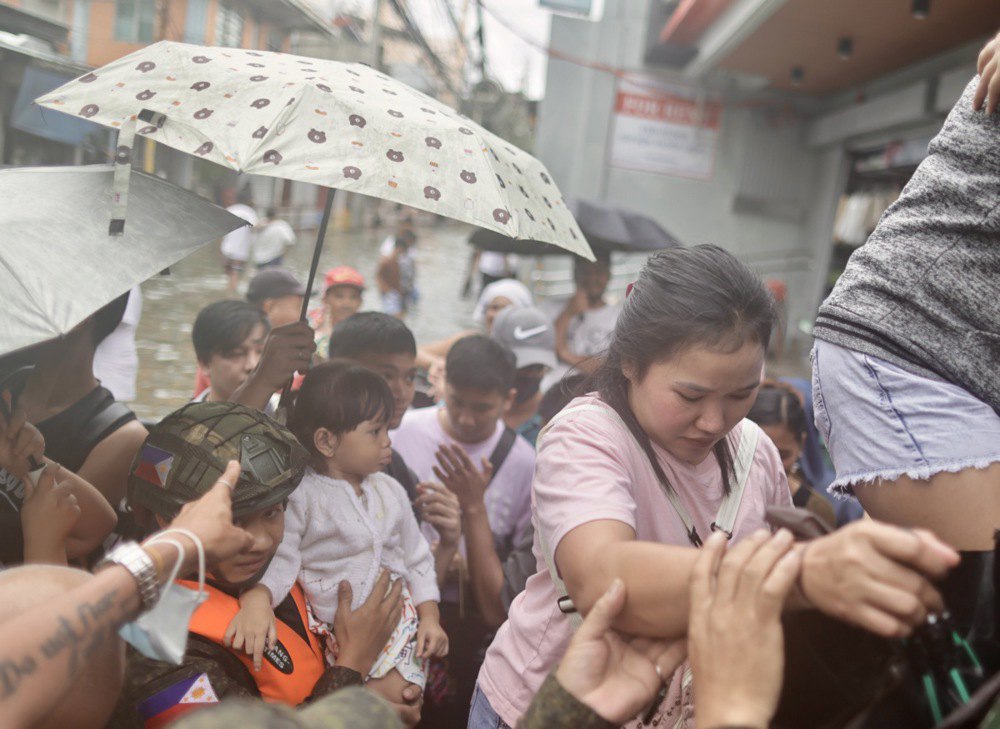
The Manila metropolitan area is an agglomeration comprising 17 cities with a total population of approximately 25 million people. Some people live on the streets, some in chaotic slums, and some in respectable mansions with swimming pools. And all of this is in the same neighbourhood. The average age of the Philippine population is 26. The birth rate is high: about 4 children per person. Abortion and divorce are prohibited in the country. However, there is a legal procedure for annulment of marriage, which allows people to "cancel" their marriage as if it had never happened. People from all over the country flock to Manila in search of work and other opportunities.
"In the Philippines, there is a narrative that 'Russians, who have such a wonderful culture, cannot kill.'"
The European Union, Canada, the United States, the United Kingdom, China, South Korea, Japan and Russia have clear cultural strategies for promoting their agendas and values among the Filipino population. These countries use education, the media and their cultural representations. There is a state support programme for Filipino youth, which provides the opportunity to obtain higher education abroad, but on condition of mandatory return and work in their profession. Therefore, for example, the Philippines has a fairly strong fashion industry, as many local designers studied in Europe and America but returned and created their own local brands.
Russians are trying to spread their propaganda by promoting their own culture. In the Philippines, there is a community of people who have visited Russia at least once in their lives. They discuss their admiration for everything Russian, and Moscow, of course, takes advantage of this. Therefore, it is not surprising that there is a narrative in the Philippines that "Russians, who have such a wonderful culture, cannot kill," and some people continue to believe this.
Ukraine only recently opened its embassy in the Philippines (in 2024 – Ed.), although it established diplomatic relations with this country at the beginning of its independence. Therefore, when I say there that the Philippines is a strategic partner of Ukraine, it still sounds unconvincing.
There is a lot of talk in the Philippine media about the fight against corruption, but civil institutions are still in the process of being formed. Unlike in Ukraine, there are not so many strong NGOs that systematically monitor and control the actions of the state.
While civil society institutions are being formed, numerous business clubs and business associations, which include representatives of large and medium-sized businesses, play a significant role in the country.
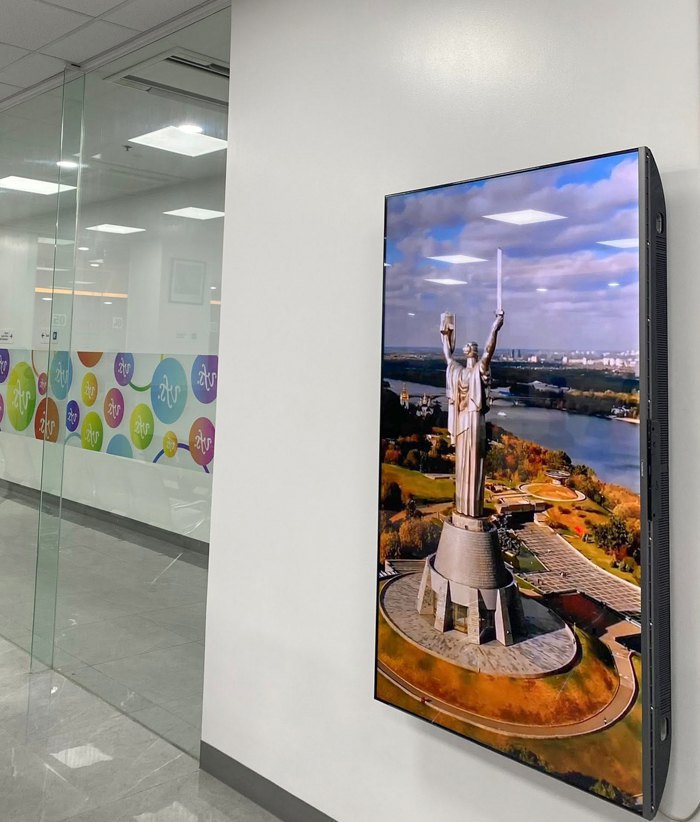
“The US Embassy in the Philippines employs 350 people; the Ukrainian Embassy has a staff of three diplomats.”
The Ukrainian community in the Philippines consists of 97 people, most of whom are expats. Among them, there are very few, literally a handful of people who have lived there for more than a decade.
For those who previously lived and worked in Western Europe, working in the Philippines is not easy: here, personal connections are more important than institutional ones. The love of food is greater here than in Ukraine. To establish contacts and for other work matters, you have to go to lunches and dinners. You come to the ministry just for small talk, and they sit you down at the table and bring out the first, second and third courses. Refusing food can be taken as an insult on your part, so it is undesirable to do so.
The US Embassy in the Philippines employs 350 people, and the Canadian Embassy employs 400. The Ukrainian Embassy has a staff of three diplomats. To be honest, I often think that Ukraine does not yet fully realise the importance of investing in its presence in the Philippines in particular and in Asia more broadly. We invest a lot to maintain the goodwill of the EU, the US, and Canada, but perhaps some of these resources should be redirected to places where Ukraine is still little known.
It is very important that Ukraine makes efforts to be recognised in the Philippines not only for the events of the war with Russia, but also from other perspectives, so to speak. We can act from a position of expertise and thus strengthen our subjectivity in their eyes, share with them our experience in securing and evacuating cultural heritage, which is also relevant to them, as well as our practice of caring for all living things, especially animals, in conditions of full-scale war and emergencies.
Ukrainians are moving towards individualism, but in order to establish contact with Filipinos, it is important to take into account that they think in terms of the "collective" and tend to take into account the opinion of the community. Filipinos try to be good to everyone and to be diplomatic in their relations with all.
Filipino society does not accept calls from world leaders to prepare for a new Cold War and live in a paradigm of war. For Filipinos, such calls contradict their understanding of the meaning of human life.
The text was prepared by Maryna Baranovska, communications manager of the Coalition of Cultural Activists.









